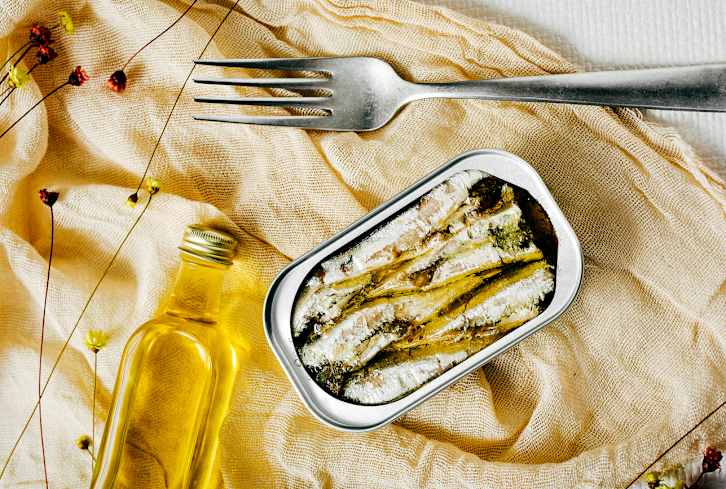Advertisement
Rhodiola Rosea: Everything You Need To Know About This Adaptogen


Rhodiola rosea is a flowering plant whose root can be used for fighting stress, enhancing athletic performance and energy, and more. Also known as golden root, arctic root, and King's crown, Rhodiola has been used for centuries in traditional Chinese and Greek medicine—and its beginnings may stem back as early as the first century A.D.
Let's take a look at the benefits and side effects of this adaptogen to help you see if it's the right thing to add to your routine:
So, what are the benefits of taking Rhodiola rosea?
There are many reported benefits of Rhodiola rosea, some of which have been studied more than others. Here are a handful that are backed up by science:
It helps manage stress.
First and foremost, Rhodiola rosea is an adaptogen, so by definition it helps your body adapt to stress. These powerful, often antioxidant-rich herbs can adapt to what your body needs—whether it be a bit of energy when you're fatigued or a way to calm a stressful situation—and help manage your cortisol levels to stave off fatigue. Some studies have also found that Rhodiola can help ease depression symptoms1.
"Adaptogens are one of my favorite natural healing tools to use in my functional medicine clinic. I often recommend Rhodiola for patients who are severely stressed and anyone struggling with adrenal fatigue because it works to support your sympathetic nervous system—the stress control center of your body," shares Will Cole D.C., IFMCP, an author and functional medicine practitioner.
It can fight fatigue.
One of the foremost reasons individuals choose to take Rhodiola rosea is for its energy-enhancing and fatigue-fighting properties. According to one study2 that followed nursing students on shift work, Rhodiola rosea helped reduce their fatigue levels more than a placebo.
Rhodiola works at the cellular level to fight mental fatigue too, as Nigma Talib, N.D., naturopathic doctor and holistic health expert explains, “Rhodiola can enhance energy metabolism and increase the capacity of mitochondria to produce energy-rich compounds in the brain, as well as in the muscles, liver, and blood.”
It's good for the brain.
Rhodiola rosea has also been shown to be beneficial for brain function and concentration. Another clinical trial3 showed that participants who took Rhodiola rosea every morning were more capable of fighting burnout and maintaining concentration throughout the day.
It can support athletic endurance.
Due to its fatigue-fighting abilities, Rhodiola rosea is often used by endurance athletes. One clinical study4 that followed young, healthy individuals who took Rhodiola rosea daily for four weeks showed an increased endurance during exercise, and the adaptogen has even been shown to enhance immune function during prolonged physical activity5 such as marathon running.
It can help with all-around recovery.
Rhodiola isn't just for super-athletes, either. "Rhodiola can be really effective for individuals who are consistently physically active. Athletes, yes, but also any of us who stand for much of the day, walk a ton, lift, or the like," explained Rachelle Robinett, a holistic health practitioner and founder of Supernatural. "As an adaptogen, it's been pretty well-studied in physical and mental performance, and if it's the right herb for you, then you should see better performance times or cognitive function, and recovery from physical exertion too."
So before you hit the gym, go for a run, or hike up that mountain, consider a dose of Rhodiola rosea for some extra support.
OK, I want to try it! What dosage should I take and in what form?
Rhodiola rosea comes in several forms—powder, tincture, extract, and pills—as well as in supplements with other complementary ingredients. As for dosage, start small and work your way up.
Robinett advises "One-eighth teaspoon per day to start, if using a powder standardized at ~3 percent salidosides, for example, which is then increased slowly to find the sweet spot. For most, if it's the right herb for you, that tends to be between 100 and 400 milligrams per day. If you're not seeing benefits there, it may be worth exploring other options."
Also, it’s important to remember that adaptogens generally work in your body over time, so try to work them into your daily routine for optimal benefits. As functional medicine doctor Frank Lipman, M.D. shares, “In my experience, most patients who take rhodiola start feeling better within a few weeks to a month,” so be patient. If you want, you can take the occasional break to see if the herbs are really working.
If you have a local herb shop, then the herbalists may be able to provide specific dosing for your needs or make you a blend with other herbs that would be relevant to what symptoms you are experiencing.
You also want to make sure Rhodiola rosea (and any other herbal supplements you're taking!) come from a trusted source. Look for third-party certifications from the brands you are purchasing such as the USP or NSF seal to make sure you're taking the adaptogen in its pure form.
What are some ways I can incorporate it into my routine?
There are so many ways to incorporate this adaptogen into your routine. Other than taking it in supplement form, you can mix Rhodiola rosea, in powdered or tincture form, into:
- Yogurt
- Smoothies
- Coffee
- Matcha
- Caffeine-free adaptogenic elixir (see recipe below)
- Chia pudding
- Water
- Tea
- Energy/bliss balls (see recipe below!)
It is often recommended to take adaptogens and herbs with a healthy fat such a coconut oil to aid in absorption. Here are two of my favorite recipes for integrating Rhodiola rosea into my daily routine:
Energizing Caffeine-Free Morning Elixir
I love this energizing elixir as part of my morning routine. I will change up which adaptogens and mushrooms I add based on what I am feeling that morning or week. It's like a mocha but with extra herbal benefits.
Ingredients
- 2 tablespoons organic almond butter
- 1 cup hot water
- ⅛ teaspoon Rhodiola rosea powder, or 1 serving tincture
- ¼ teaspoon chaga
- ¼ teaspoon Ceylon cinnamon
- 1 teaspoon raw Manuka honey
- 2 tablespoons raw cacao powder
- 1 teaspoon MCT oil
- 1 shot decaf espresso (optional)
Method
Add almond butter and hot water to blender and blend for 30 seconds (or just use 1 cup hot almond milk!), then add the rest of the ingredients and blend until frothy. Enjoy hot or pour over ice and drink with a reusable straw.
Stress-Busting Bliss Balls
These are one of my favorite healthy snacks to eat at home, in the office, or bring with me on the plane so I am sure to get in my daily dose of adaptogens. Feel free to customize them to whatever flavor profile and mix-ins you'd like.) Sometimes I'll swap the cacao for a chai flavoring like allspice, nutmeg, or cardamom, or go green with spirulina.
Ingredients
- 10 dates
- 4 tablespoons raw cacao powder
- 1 teaspoon Rhodiola rosea powder, or 4 servings tincture
- 3 tablespoons tahini
- 1 teaspoon coconut oil
- Dash of pink Himalayan sea salt
- ¼ teaspoon Ceylon cinnamon
- ¼ teaspoon vanilla bean powder or vanilla extract
- Other adaptogens or mushrooms of choice (I love ashwagandha and reishi!)
- Additional mix-ins of choice: chia seeds, flaxseeds, hemp seeds, cacao nibs, pumpkin seeds, nuts
Method
Add all ingredients into food processor and process until batter forms into a ball. Add additional cacao, dates, or tahini as needed to get to a sticky consistency. Roll into bite-size balls and top with any toppings of choice such as goji berries, hemp seeds, cacao nibs, or shredded coconut. Keep in the refrigerator and enjoy for up to 5 days (if they last you that long!).
Are there any side effects of rhodiola?
Adaptogens are widely considered to be safe and low-risk, but there are certainly some things to keep in mind before taking them on the daily. Rhodiola rosea side effects are rather limited, but a small group of participants in one study showed mild side effects such as headaches and insomnia.
Other side effects have also included dry mouth and dizziness. If you feel these effects or any general discomfort after taking Rhodiola rosea, then stop taking it. There may be an herb that provides similar benefits that your body is more welcoming to. Those who are on medication to lower blood pressure should also avoid Rhodiola rosea.
The bottom line.
Rhodiola rosea is an adaptogen that's long been prized for its ability to enhance energy, boost mood, and aid in recovery. It is now available in many forms and can easily be incorporated into elixirs, smoothies, and more. It is generally considered safe, though you should always consult with your doctor before adding a new supplement into your routine.


















